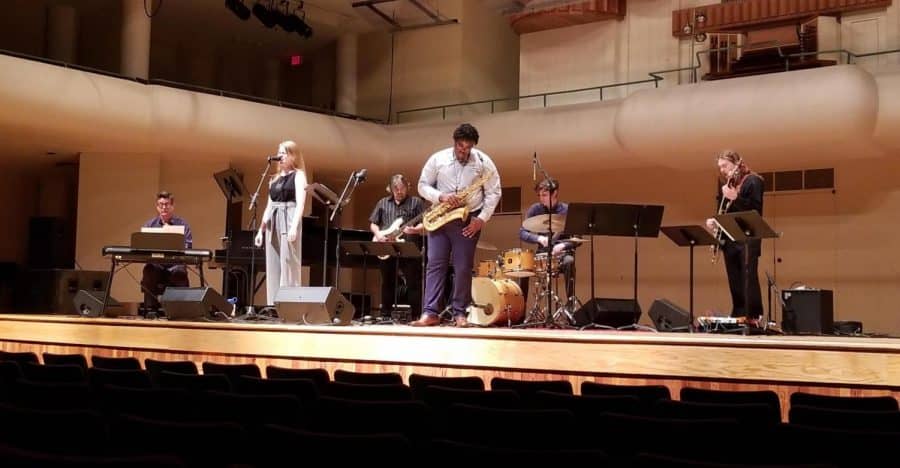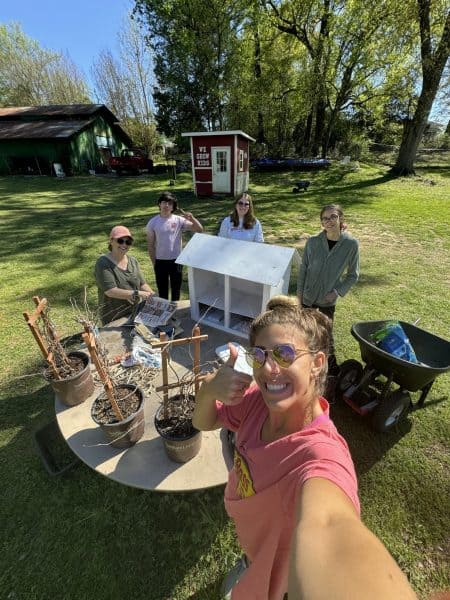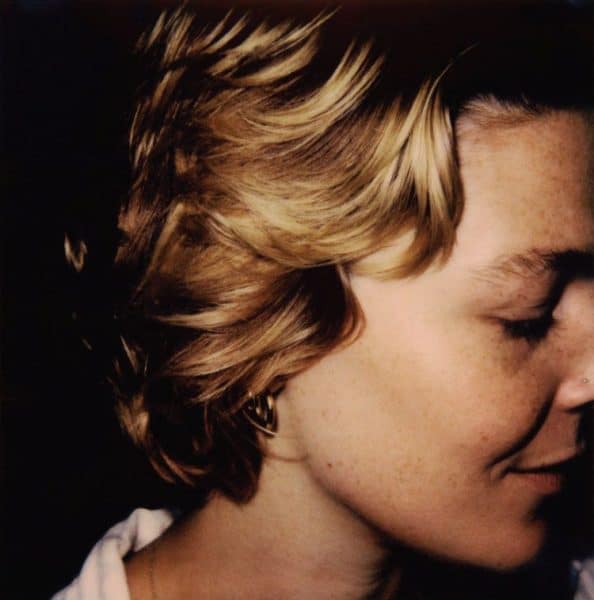Fresh sound, energy drive spring jazz concert
April 23, 2019
It would have been easy to forget that it was a jazz concert. Though it wasn’t really a jazz concert, at least, not how people usually think of one. The music was loud, the beat was driving and there was an energy in the performers that far surpassed that of many musicians. Any lover of music would have found themselves struck with the unshakeable urge to nod their heads and hum along to the choruses.
The Jazz Standards Combo, a small band, which normally plays from a limited repertoire of classic jazz tunes, reached far beyond its traditional boundaries in its spring concert. Directed by Professor Christopher Kozak, the group covered songs from the likes of Bob Dylan to Esperanza Spalding, transitioning seamlessly between styles.
Guest keyboardist Matthew Devine also brought several of his own original charts to the concert. Providing a fresh contrast to the jazz now considered straightforward, Devine’s tunes were reminiscent of Herbie Hancock in his prime: avant garde, but enjoyably listenable.
Arrangements for the various songs in the set were adapted or wholly conceived by the combo, allowing the song structure and instrumentation to be perfectly suited to the character of the ensemble. The combo’s senior saxophonist Reese Cloud had his own stellar arrangement of Butcher Brown’s “Street Pharmacy.” Featuring verses built on a Stevie Wonder-like riff, the song melted into a chorus of a simple jazz progression that never dulled as it repeated.
Cloud, true to his name, flew in quick bursts with his stable melodic lines. He avoided the erratic, scale-spamming soloing that often inundates improvisation. Cloud’s deliberate construction of an improvised melody was apparent in his precision, saving his ornamental punches for the times they would be most effective.
Jonathan Harms, guest guitarist, brought in his own arrangement of Esperanza Spalding’s “Cinnamon Tree.” His rendition stayed faithful to the original while allowing more space for traditional solo breaks, which the musicians of the combo were quick to capitalize on. Harms himself was one of many highlights throughout the concert. He never hesitated to go all out in an improv line, even after breaking his high E string halfway through the concert.
Vocalist Abbie Duginski shone brightly in each of her four songs on the night. The concert opener, “Don’t Think Twice, It’s Alright,” was crisp from the start, with Daginski and Cloud often harmonizing. Combined with her effective lyrical delivery, Duginsky’s ability to precisely tune ninths over minor chords was a wonderfully chilling sound throughout each song.
And of course, no combo would be complete without its backbone. Drummer Benjamin Holcomb and Kozak on bass provided the support a listener could easily get lost in. Holcomb’s ornamentations and fills were well-placed, giving songs the syncopation needed to drive as only a jazz chart can. And though it often faded into a support role, Kozak’s bass occasionally came through in a solo or countermelody that freshened the final choruses of a song.
However, the bass and drum set were mixed a little too loudly for the entirety of the concert, muddying the solo work of Devine and Cloud. Devine’s high-flying keyboard improvisations were often unintelligible in extremes of range, and Daginski’s lyrics were unclear in her lower register, both problems likely stemming from the sound mixing.
The Jazz Standards Combo embodied the best facets of the genre in its spring concert. The musicians’ ability to adapt, their unwavering energy, and the pure skill needed for their craft created an evening of music worthy of being called jazz.











